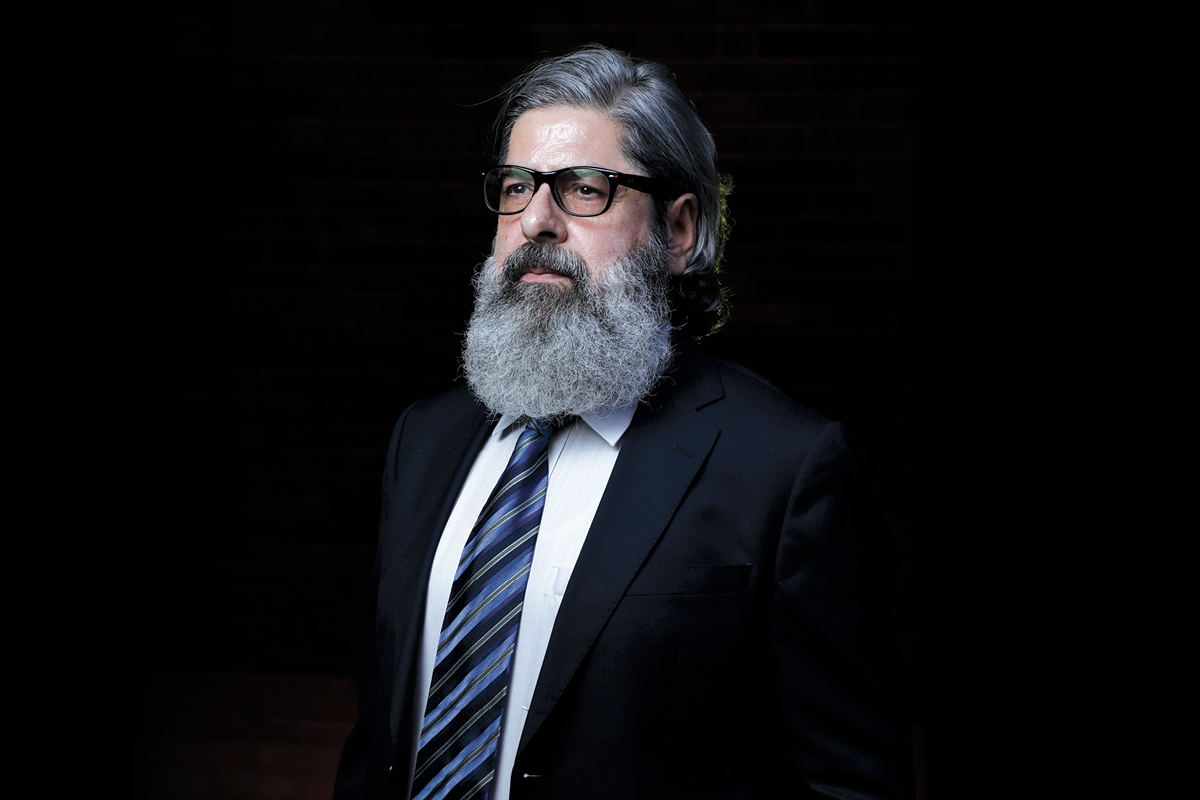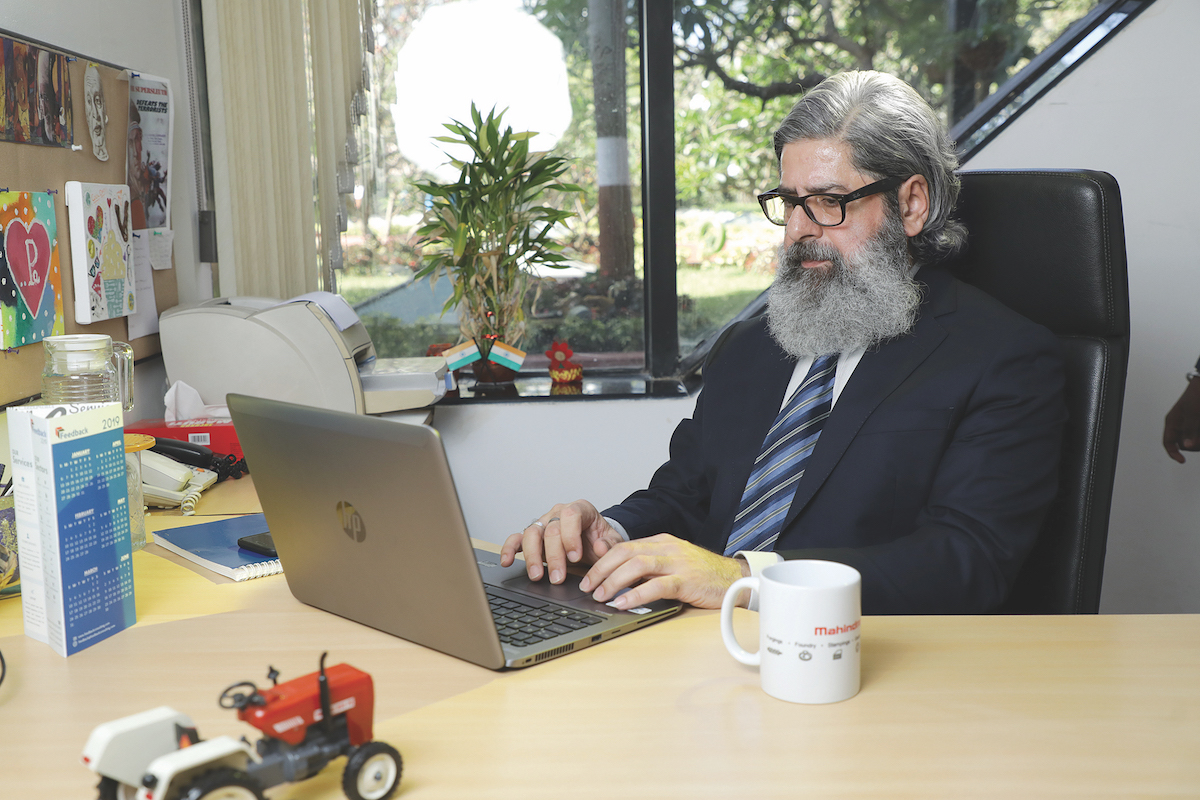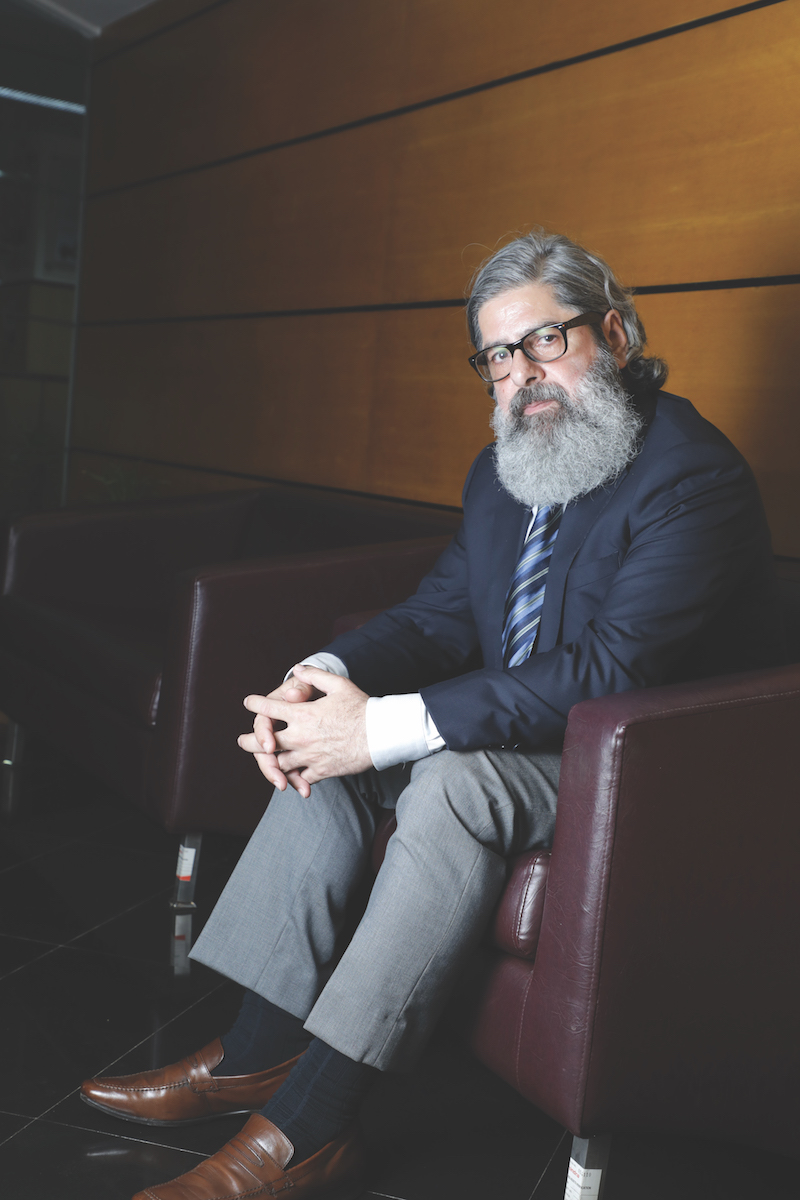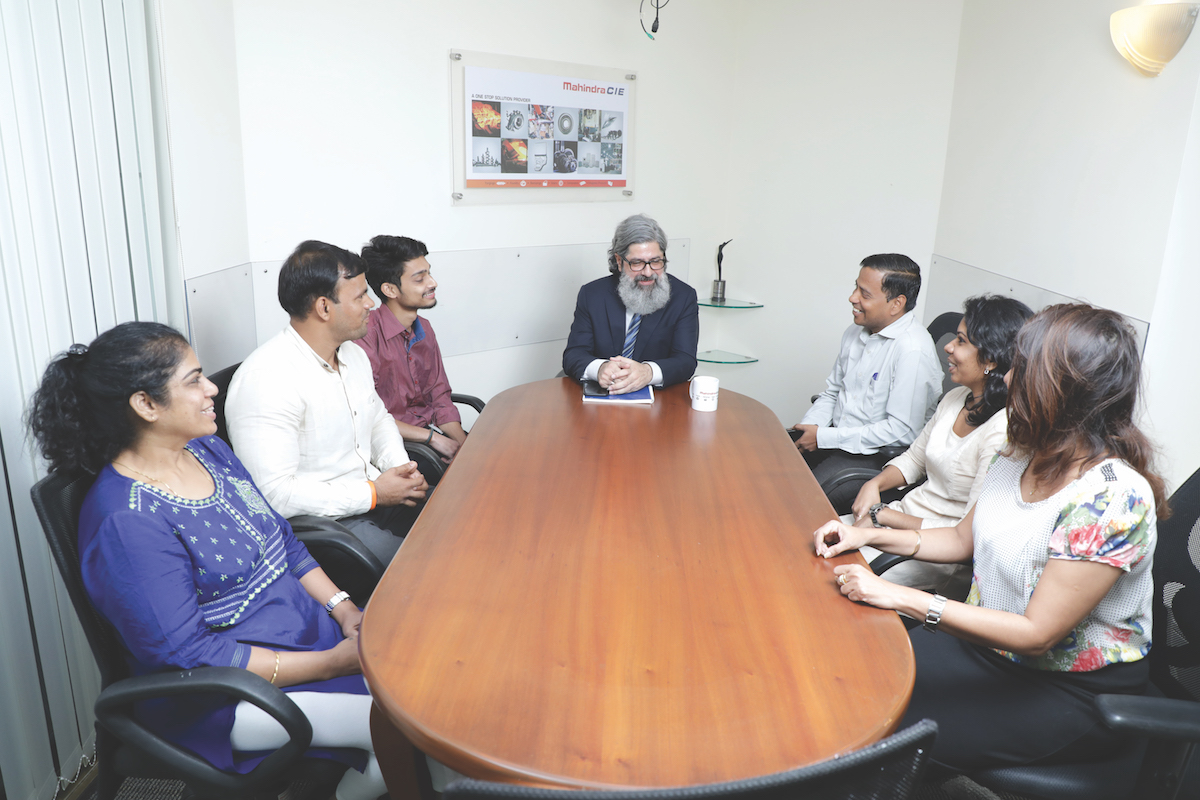There are many challenges associated with running a business, especially a large manufacturing company like Mahindra CIE. However, Executive Director Romesh Kaul reveals his biggest challenge is attracting and retaining talent. “The best advice I have ever received is to invest in building teams,” he explains. “It is essential that you build enough bandwidth in these teams so that the business is not restricted by a limited perspective.

If you ask me, one of the biggest challenges in India is going to be people, particularly continuing to attract good, capable and competent talent, and retain it.” Given that so many big manufacturers from Europe and America are now based in India, Romesh says there’s more competition for talent than ever before. “I think good managers, technical people and specialists will always be hard to find,” he says.
“One of the biggest challenges in India is going to be people, particularly continuing to attract good, capable and competent talent, and retain it.”
“At Mahindra CIE, we have recognised this, and we are making sure that this receives a high degree of focus and attention in our discussions about risk mitigation as we move forward. No matter what industry or vertical you are in, the one common resource that you need to be very well prepared for is people. I think the future will see a bit of a bloodbath in the talent market and I think all of us should pay attention to that. We need to focus on talent.”
When it comes to the strategies Mahindra CIE uses to attract and retain talent, Romesh says the firm encourages its employees to make a meaningful contribution to the company through their roles, as well as recognising and rewarding good performance. “We empower our teams to deliver on the objectives identified for the organisation so that we can achieve operational and business excellence,” he says.
“We also fully support our teams when necessary. We set bold targets and objectives for our employees and support them as they strive to achieve these goals.” Romesh believes it’s also important to celebrate the success stories of high-performing teams and individuals. “We need to strike a good balance of getting results here and now and recognising these, as well as getting equipped for the future,” he says. “It’s important that we invest in the technical and managerial capabilities of individuals to prepare them for the challenges ahead.”
“We set bold targets and objectives for our employees and support them as they strive to achieve these goals.”
Reflecting on his own journey in the company, Romesh says one of the things he enjoys most about his job is the empowerment and the culture of high performance throughout the business. “I love the people, and their energy and enthusiasm,” he says, smiling. Romesh joined the Mahindra group in 2004 and initially worked in the automotive components branch, Mahindra Systech. At that time, he was also considering roles in two other companies.
“I was very lucky at that point, as there were three opportunities presented to me,” he recalls. “At no other time have I had it so good that I could choose between three different roles. One of them was with a major commercial vehicle company, working in quality control in their passenger car and truck business. The second one was a manufacturing opportunity with a multi-utility vehicle company. And, of course, the third one was the newly formed Mahindra Systech.
“The reason I chose the third option was because it offered a tremendous number of entrepreneurial opportunities. That meant I could actually write and create a destiny of my own through building up the new business, acquiring other businesses, turning them around and so on. To me, the first two opportunities seemed like routine, run-of-the-mill operational roles, whereas the role with Mahindra Systech was very exciting because it offered me the opportunity to be an entrepreneur and the driver of my own future. I think this was fundamentally the reason I chose this role over the others.”

A turning point came in 2013, when Mahindra & Mahindra formed a joint venture with Spanish automotive components company CIE Automotive. Romesh was offered the opportunity to head up three verticals of the new venture, Mahindra CIE.
While Romesh acknowledges the automotive market can be very cyclical, he says that won’t get in the way of the company’s growth plans. “It is a given that the market goes through ups and downs,” he says. “However, we have a very clear mission and a very clear goal that we will continue to grow. We will continue to grow, and we will continue to grow reasonably and profitably with all our customers.
“We will also continue to grow geographically, particularly in some of the regions where we only have a small presence at the moment. If you look at the parentage that we have today, we are predominantly owned by CIE. CIE operates globally and it has a presence on practically every continent. It has a significant presence in America and Europe, as well as in China to a lesser extent, and of course in India it is present through Mahindra CIE. So, our stated goal is to continue to grow with our partners internationally. Going forward, we want to acquire more customers, and we want to reach more customers that we’re not currently serving.”
There is also a strong focus on innovation and technology at Mahindra CIE. The company is determined to have best-in-class processes and technologies relevant to the needs of its customers. “We focus on business excellence as a tool to stay ahead,” Romesh explains.
“Essentially, innovation is the key to success. We need to keep innovating continuously to retain our competitive edge. It’s also important for us to keep a close watch on the technology and product trends of the emerging future. We want to invest in more and more technologies that we’re not currently providing to our customers but are becoming the need for tomorrow. For example, there is lots of talk about lightweighting, so this is an area we need to look at to develop new technologies. We will keep exploring all these new areas and, at the same time, grow our business.”
When Romesh talks about operating at the top level, he uses the analogy of juicing a lemon. “In a company such as ours, I think you have to keep squeezing the lemon called operational excellence as much as you can to get out every last drop of juice. You have to focus on the most efficient use of raw materials.

You have to focus on adopting the most efficient purchasing. And, most importantly, you have to make the most efficient use of your own resources, your people. It’s important to ensure you don’t end up under-utilising or over-deploying resources and not using them productively. It’s all about making sure we drive very high levels of efficiencies in our operations.”
The team at Mahindra CIE works hard to deliver a high level of service to customers by understanding and responding to their cost, quality and delivery needs. “We like to engage with them early in the process, while they are designing products, and participate in the process so that we can give them the most effective and efficient solutions,” Romesh says.
One of the areas that Mahindra CIE is keen to improve upon is consistency and reliability. “Today, in India, we suffer a little bit compared to some of the other nations, like China.
So, the focus that we have chosen for ourselves in the next 12–18 months is prudent automation. This is not only to spruce up productivity and so on, but also to go to the next level in terms of consistency and reliability in what we produce.
“In all fairness, a human being is a human being. We’re not talking about replacing a human being because of costs. We are talking about replacing a human being because of the demands in terms of consistency and reliability that our customers expect. Considering that another one of our focuses going forward is exporting as many products as we can, these concepts become even more important.
In order to be able to successfully service the needs of our overseas customers, we have to be absolutely clear and sure that our processes have a very high level of consistency andreliability. Otherwise, a failure can become very expensive and very embarrassing. We are also looking at the use of automation in quality control, which at the moment is very dependent on humans.”
Romesh believes that Mahindra CIE has a “great working relationship” with its suppliers, although there have been some challenges along the way, particularly when the company acquired new businesses. “I think our philosophy and our guiding principle has been very simple: we have to treat our suppliers as partners in progress,” he explains.
“First and foremost, everything doesn’t fall into place on day one. It takes a few months or years to build up that trust. When we have acquired companies and inherited their suppliers, those people are used to dealing with the old owners rather than us. So, there’s always a phase where we kind of test each other. But they soon see that we honour our commitments, and we see that they do the same on their part.

“Initially, when you’re in a situation where the vendor is unsure of his relationship or position with a company, his level of commitment – to quality, to reserving capacity for you, to making investments for you – is limited.
But the moment you start showing that trust, the moment you start working with them as partners, the moment you start working with them to optimise and improve their processes and so on, they begin to respond and begin to make those investments and put in that extra effort. As a result, our relationships with our suppliers have only grown over time, and reason, logic, rationality, fairness and warmth have prevailed.”
“I try to take life as it comes, give each moment and situation my very best, put in unconditional effort and make it succeed.”
As Romesh talks about Mahindra CIE, there’s no doubt he is extremely enthusiastic about his role there and the people he works with. “I try to take life as it comes, give each moment and situation my very best, put in unconditional effort and make it succeed,” he says.
“It’s important to have passion in what you do. I believe that passion, intelligent understanding and analysis, hard work and a bit of luck can move mountains. I started off in life never imagining that I would reach where I am and achieve what I have. I’m so grateful to all those who have supported me in my journey.”


